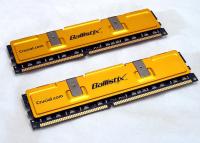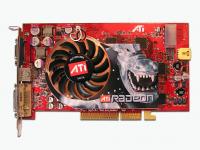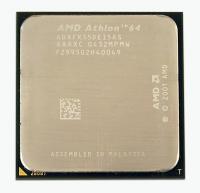When is the right time?
This is a question that is asked frequently from many people in different walks of life. Do I upgrade, or should I just buy a new system? This guide is intended to provide an outline to help you answer this question based on your needs.
Your personal computer is a tool that can be used for many different things, but most users have a primary and/or secondary set of applications that they use most often.
If you are hardcore gamer who likes to surf the net and download lots of large files, your goals would be different for upgrading or buying a new system choice, than say someone who uses their system for playing the stock market, typing letters and working with business software. Prices on the different systems vary in amount with high-end gaming or media encoding machines topping the Rs.1,00,000 range, to office and email machines down as low as Rs.15000.00 for complete systems.
You have to first determine your systems functionality and then decide what your major and minor uses are going to be. Sit down and really think about what you are going to be doing, not only now but also in the near future and plan around that goal before you just rush out and make a rash purchase. These steps can be a very efficient method for determining what your system needs actually will be.
Let's take a look at a series of questions that can help you determine if its time for a quick upgrade or time to junk that old system and just buy a new rig. A few quick steps and then you decide what is best for you.
Analyse your current system
Take a good hard look at your current system, and then decide in what area your system is not performing to your expectations or needs. Some problems can easily be fixed by adding additional memory, changing video cards, or upgrading the CPU. This can be a critical decision for the user to make, so just take your time and analyze what it is you most need to accomplish your goals.
Can a memory upgrade fix my problems?
If your system was bought within the last two years chances are a memory upgrade can alleviate many system performance problems.
Ask your self the following questions.
- Is your system sluggish when you are multitasking or when you have many windows open at one time?
- Do programs take a long while to load?
- Is your Internet slow and unresponsive between page loads?
- Is your installed memory less than your Operating System's minimum requirements?
If you answered yes to one or more of the above questions a memory upgrade may be in order.
These are all symptoms that are commonly associated with memory and can usually be resolved by adding additional memory to your system. Memory prices have dropped significantly in the last few years and adding memory is a simple pop in a chip procedure that anyone can accomplish. Just read your manual to find out which slots the memory go in and the rest is easy. Always upgrade your memory to the fastest speed that your motherboard supports.
Windows XP needs at least 512Mb of memory to really run well so keep that in mind if you are using that OS. Microsoft states a lower memory requirement, but anything lower results in program lags in the multitasking environment.
Can a new video card fix my problem?
If you have a mid-range to high-end system bought within the last year chances are that if you are a gamer a new VGA card may help you play the latest and greatest game on the market. Most games are GPU, not CPU intensive these days so there is most assuredly a card that will handle all the games currently playing even if you do not have the highest speed processor.
Your motherboard plays a crucial role in determining what parameters you have to work within when deciding a VGA card upgrade. Check your manual to see what type of AGP/PCI-X slot your board has as some boards only support the current 1.5V spec others only the older 1X-2X slot, while still some others offer a universal slot that works with the older 1X-2X cards as well as the later 4X-8X cards. PCI-X is the new kid on the block that replaces the AGP slot on your motherboard. Both Intel and AMD will be supporting PCI-X graphics via the PCI 16X Express slot so there will be many cards to choose from for this new graphics interface standard.
Ask yourself the following questions.
- Does your VGA card specs fall below the minimum requirements of the games you want to play?
- Is the visual quality below the level you are satisfied with?
- Do your games lag in frame rates resulting in chugging graphics?
- Are the games you want to play the latest FPS titles using current Direct-X features?
- Do you have to run your games with all the features turned to low?
If you answered yes to any of the above questions a new VGA card might solve your problems.
Be sure you analyze what your needs are clearly going to be before researching your next VGA card as that will be the criteria for making your decision. If you are a light gamer a mid range $150.00-$250.00 card may be the solution you need, but if you are an avid gamer buy the best card you can afford, even if that means spending more money. The reason for this advice is that top-end VGA cards maintain their status for usually at least six months and then still perform well through the next few VGA upgrade releases. If you buy a low-end card its life span will be much shorter and you will probably want to buy a card just a few months down the line as newer games keep getting released requiring more powerful cards to run them.
Can a new CPU fix my problems?
This is the probably the second most expensive and definitely important upgrade you can attain, its upgrade options are dictated by what motherboard you have and what its upgrade capabilities are. Sometimes a quick BIOS flash can solve the dilemma of new CPU recognition and allow that old board just a little more life. Check the website of your motherboards manufacturer and see what BIOS options are available.
Ask yourself the following questions.
- Is your system slow to boot or respond to commands?
- Is your CPU under the minimum requirements of the applications you are trying to run?
- Can your system be upgraded to the latest CPU of its line?
- Is your CPU below the minimum requirements of your Operating System?
- Do you have an old slow CPU on a good modern board?
If you answered yes to any of the above questions, a new CPU may just be the answer to your systems inability to perform in the way you want. This can be an easy to do upgrade for most users. Say you have an older Celeron or Duron processor in your system; if that is the case a CPU upgrade would be a major performance improver as both the Pentium and Athlon series of CPUs offer much greater power than their budget brothers. You will notice a significant change in the overall running of your system with a descent CPU upgrade. Jumping from a 500MHz CPU to a 750MHz CPU will not show much of a difference, but on the other hand going from a 1.2GHz CPU to a 2.4GHz CPU will show dramatic differences.
What about my sound options?
If you currently have a 2.1 speaker configuration and want to move into the 5.1 or higher surround sound environment, and you are using either an on-board or discreet audio controller that is limited to 2.1 only, you need an upgrade. As long as you have an open PCI slot chances are good that you can find a discreet card that will suit your needs and connect to whatever 5.1 speakers you want to use.
What about changing my motherboard?
Changing your motherboard out is a quite the challenge for the beginning user, and it can be a very daunting process for those not so mechanically inclined so think hard on this one. The biggest problem with changing out your motherboard is migration of the other system parts. Many times when you change out a board, things like the memory, CPU and the video card will not migrate over to your new board and this is why it is such a hard decision choice. With SDRAM, RDRAM, DDR and now DDR2 boards in circulation it can be a bit confusing. These are all different specs of memory that only work within their own slot, so look carefully, and make sure if your budget does not include funds for additional parts, that you positively can use your old parts on your new board.
Conclusion
If you answered yes to any questions in one or two of those areas above chances are good you can probably get away with just some parts upgrades. However, if you answered yes to questions in all three areas, chances are its going to be time for a new PC upgrade here in the near future anyways so replacement may be a better option here, especially if financially feasible to your current budget. Shop around online and in the stores before you buy as prices vary and you would be surprised at how much you can save with a little research. Give yourself a few different options in case something you want is not in stock or not readily available at the time you want to do it. Take your time, evaluate all your needs or wants and then make a move. To upgrade or replace has some grey area and you must decide what most fits your situation









No comments:
Post a Comment